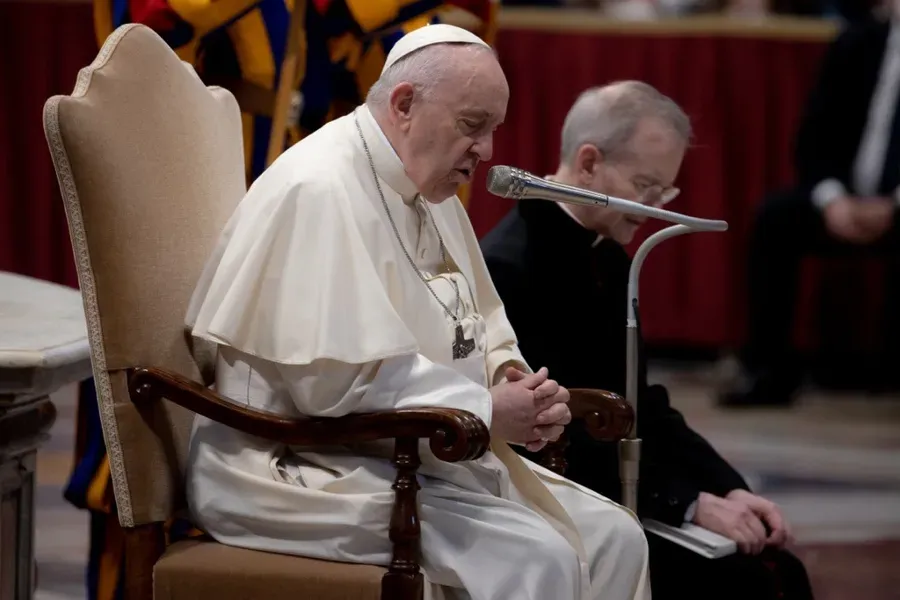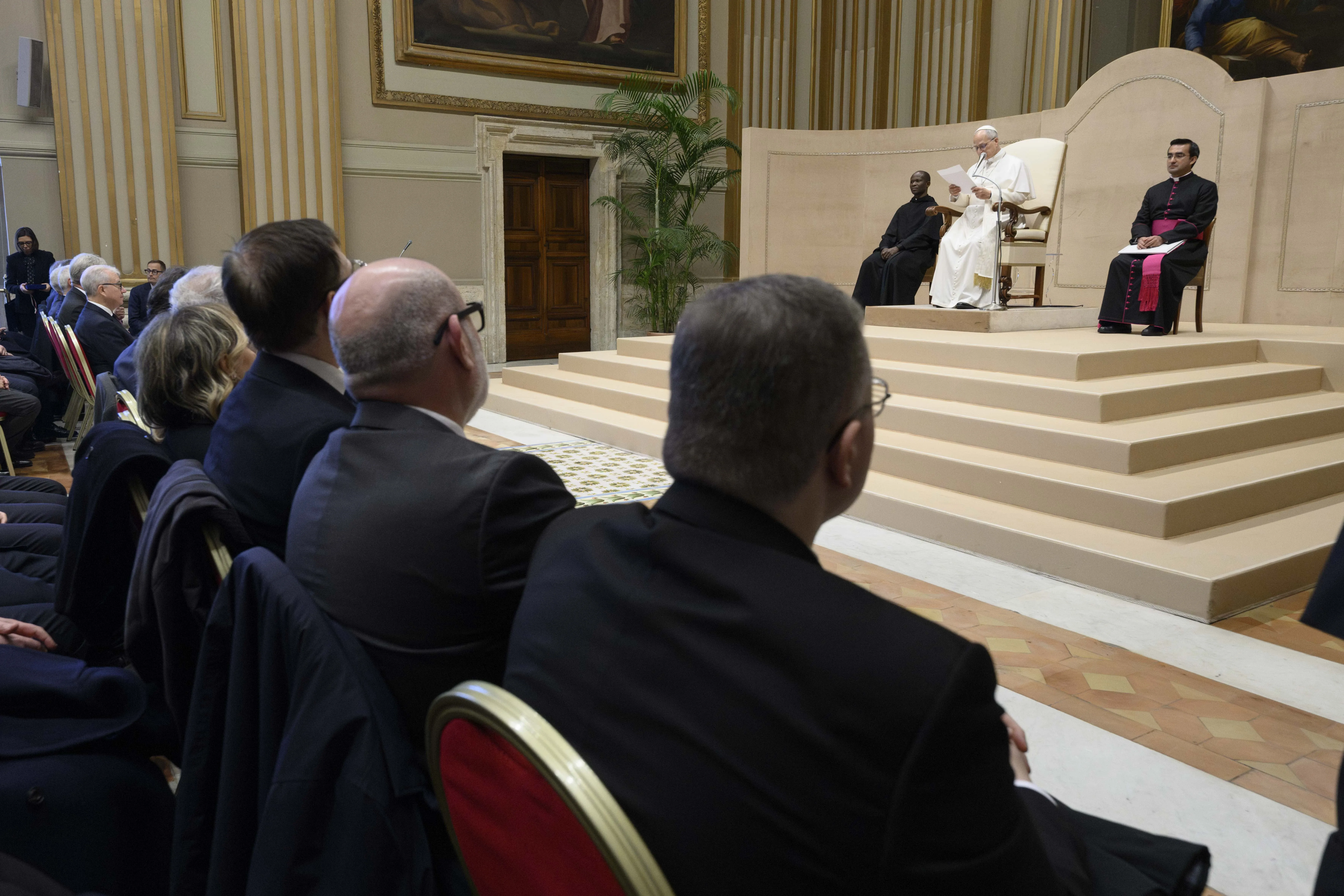The pope also asked young people to pray for their peers in Ukraine who are suffering. He was speaking during a brief meeting with Catholic school students from Milan, northern Italy, in St. Peter’s Basilica just before the general audience.
He said: “I ask you to think, let’s think of so many children, boys and girls, who are at war, who today in Ukraine are suffering. They are like you, six, seven, 14 years old. You have before you a future, a security of growing up in a society in peace. Instead, these little ones, even little ones, have to flee from the bombs. They are suffering so much with that cold that it is there.”
“Let each of us think of these kids, boys and girls, who are suffering today, 3,000 kilometers [1,800 miles] from here. Let us pray to the Lord, I will make the prayer, you pray with me with your heart and mind.”
The pope then prayed for “all the children who are living under the bombs, who see this terrible war, who have no food, who must flee, leaving home, everything. Lord Jesus, look upon these children, these children, they are the victims of the pride of us, the adults. Lord Jesus, bless these children and protect them. Together we pray to Our Lady to protect them.”
Noah and the Flood
(Story continues below)
In his general audience address, Pope Francis offered a reflection on chapter six of the Book of Genesis on the flood that struck the world in the time of Noah.
“The Bible narrative — with the symbolic language of the time in which it was written — tells us something shocking. God was so embittered by the widespread wickedness of humans, which had become a normal style of life, that he thought he had made a mistake in creating them and decided to eliminate them. A radical solution,” he said.
“It might even have a paradoxical twist of mercy. No more humans, no more history, no more judgment, no more condemnation. And many predestined victims of corruption, violence, injustice would be spared forever.”
Pope Francis said that in modern times, too, people can be “overwhelmed by the sense of powerlessness against evil or demoralized by the ‘prophets of doom,’” which makes people “think it would be better if we had not been born.”
“Should we give credit to some recent theories, which denounce the human race as an evolutionary detriment to life on our planet? All negative? No,” Francis said.
Pope Francis highlighted how in the biblical account of the flood, God entrusted an elderly person, Noah, with the task of saving life on Earth. Noah is an example of righteousness for older people, in particular, he said.
“Noah does not preach, he does not complain, he does not recriminate, but rather he takes care of the future of the generation that is in danger … He builds the ark of acceptance and lets people and animals enter it,” Francis said.
“In his care for life, in all its forms, Noah obeys God’s commandment, repeating the tender and generous gesture of creation, which in reality is the very thought that inspires the command of God: a new blessing, a new creation.”
Corruption
Much of the pope’s general audience reflection focused on the topic of corruption.
Quoting the Gospel of Luke (17:26-27), Pope Francis said: “Jesus, speaking about the end times, says, ‘As it was in the days of Noah, so it will be in the days of the Son of Man. They ate, they drank, they married, they were given in marriage, until the day when Noah entered the ark, and the flood came and destroyed them all.’”
The pope noted that “eating and drinking, taking a husband or wife, are very normal things and do not seem to be examples of corruption.”
“In reality, Jesus stresses the fact that human beings, when they limit themselves to enjoying life, lose even the perception of corruption, which mortifies their dignity and poisons meaning … And they even live corruption in a carefree way, as if it were a normal part of human wellbeing,” he said.
“The goods of life are consumed and enjoyed without concern for the spiritual quality of life, without care for the habitat of the common home. Without concerning themselves with the mortification and disheartenment of which many suffer, nor with the evil that poisons the community. As long as normal life can be filled with ‘wellbeing,’ we do not want to think about what makes it empty of justice and love,” the pope said.
Pope Francis added that when people think only of themselves, it is a “gateway to corruption.” He said that “ungodly carefreeness” weakens and “dulls our consciences.”
Taking Noah as a model, the pope proposed that older generations have a responsibility to help young people to renounce corruption.
This was the pope’s third reflection in a cycle of catechesis, which began on Feb. 23, focused on seeking inspiration in the Word of God on the meaning and value of old age.
“And we, women and men of a certain age -- not to say old, because some are offended -- do not forget that we have the possibility of wisdom, to say to others: 'Look, this path of corruption leads nowhere.' We must be like good wine that in the end when old can give a good message and not a bad one," Pope Francis said.
"I make an appeal today to all people who are of a certain age, not to mention old … You have the responsibility to denounce the human corruption in which we live and in which this totally relative way of life of relativism continues, as if everything were lawful. … We ask the Lord for the grace of wisdom.”
Courtney Mares is a Rome Correspondent for Catholic News Agency. A graduate of Harvard University, she has reported from news bureaus on three continents and was awarded the Gardner Fellowship for her work with North Korean refugees.








